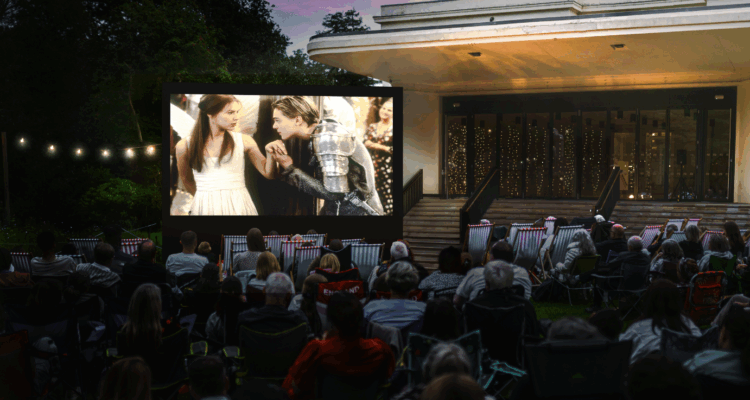High Impact Literature
 Following The Reader Organisation’s trip to Antwerp, we’re taking a second visit to the Dutch-speaking world today via High Impact: Literature from the Low Countries.
Following The Reader Organisation’s trip to Antwerp, we’re taking a second visit to the Dutch-speaking world today via High Impact: Literature from the Low Countries.
This unique tour featured 6 events over 6 days in 6 UK cities, with 6 of the best and brightest Dutch Language writers reading and discussing literature. Organised by journalist Rosie Goldsmith in collaboration with the Dutch Embassy and Flanders House, the tour visited Oxford, Birmingham, Liverpool, Sheffield, and Norwich, before ending with a gala in London last Friday.
Some of us at The Reader Organisation were lucky enough to see the Low Countries Literati at the Epstein Theatre in Liverpool and came away inspired:
“I thought Rosie’s Goldsmith’s passion for bringing the best literature from in translation to a wider audience was evident, as was her own connection with the books she was talking about.
The evening certainly made an ‘impact’ on me, which I think was perhaps a combination of its unusual nature, the range of writers it presented, the breadth of their coverage and the honest and compelling manner they spoke about their work, in a way which was by turns both moving and entertaining.” Ellen Perry, Development Assistant
The writers came on stage in pairs to discuss their work and influences, and the issues this raised. The nature of Dutch society was the topic of conversation for the first pairing, Herman Koch, comic actor turned novelist, and Ramsey Nasr, the Dutch poet laureate. Koch’s bestseller, The Dinner, has been described as a “middle class horror story” as it centres the disintegration of a meeting between two couples attempting to deal with an outrage committed by their sons, and he posed the question as to whether the Dutch were losing their famed tolerance, or whether it had ever existed in the first place. This idealised heritage was also questioned by Nasr in the light of the cuts faced by the arts in a region which is very proud of the culture of its past, but apparently unwilling to support the culture of its present.
Appropriately, given their venue in the home of the Beatles, both Nasr and Koch cited music as a key source of inspiration. Nasr waxed lyrical about music as one of the highest forms of art, unhindered by any obstacles of language or understanding, something poetry is able to match by bringing language to life and imbuing it with a musical quality. This idea of removing linguistic and cultural barriers was later echoed by the graphic novelist Judith Vanistendael in relation to the direct visual power of images to speak to any audience; the moving pages she shared from her most recent publication, When David Lost his Voice, and Nasr’s rendition of one of his poems in the original Dutch, were certainly testament to this.
The evening moved beyond the boundaries of the Low Countries with Lieve Joris and Chika Ungiwe, women who write with an emphatically
global perspective. Joris, a distinguished writer of travel literature, uses the lives of real people to tell the story of an entire nation. She shared with the audience her experience of spending a year with the Malinese singer Kar Kar, drawing out his personal tale of success and tragedy to form a story which epitomised the struggles of his people in Mali Blues. Unigwe, a Nigerian born Belgian resident who has previously written successful novels about the lives of African women both at home and in Europe, took the brave step of reading an extract from her brand new manuscript based on the life of Olaudah Equiano, the eighteenth century African writer who played a prominent role in the abolition of the British slave trade. This marks a new direction for Unigwe and her courage paid off, as the audience responded warmly to her depiction of Equiano’s conflicted feelings about loving a woman whose white skin symbolised the pain and suffering of his past.
The sheer diversity of the conversation and the speakers, from prize-winning novelist Peter Terrin’s love for the manual act of writing on a typewriter, to the inclusion of often ignored graphic novels in a literature event, made for a truly compelling and thought-provoking evening. There is an entire world full of great writers and great literature, both in their native languages and in translation, which we in Britain rarely consider in our reading habits, much to our loss.
All the authors featured on the tour have books available in English and you can find out more about them on the High Impact website. If you’re in Liverpool, News from Nowhere on Bold Street have a display of the translated High Impact Literature – why not pop down and start broadening your reading horizons?
Share
Related Articles

Storybarn Book of the Month: Saving the Butterfly
This month, as part of Refugee Week (16-22 June), we've been taking a look back at one of our favourites…

Open Air Cinema and Theatre FAQ’s
If you were able to snap up tickets to our Open Air programme this summer, check below for any queries…

New Liverpool open air cinema brings movies to the Mansion
NEW FOR 2025: Eight handpicked films will hit the big screen in Calderstones Park this summer as national Shared Reading…



